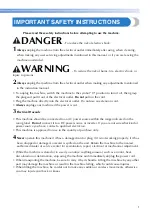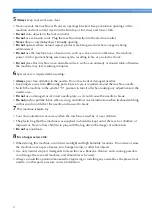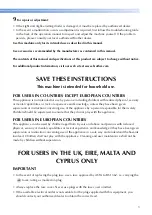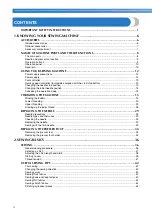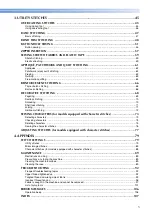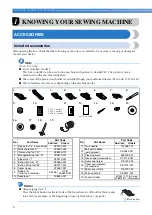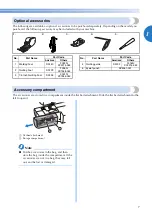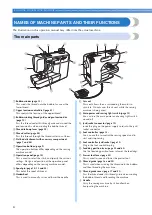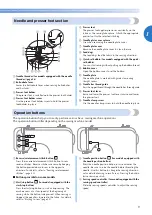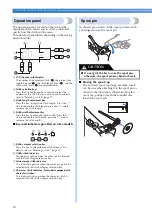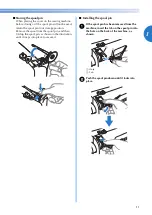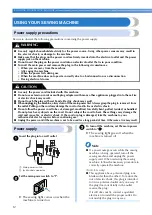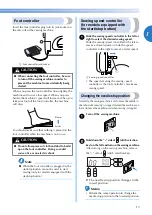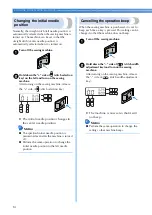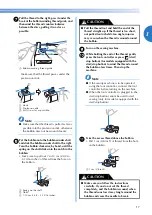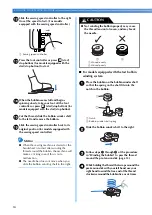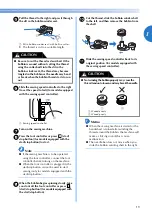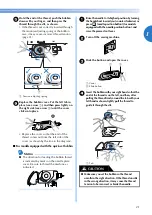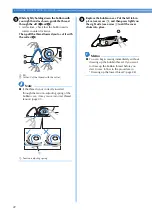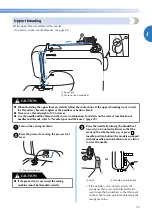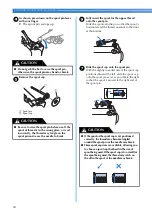
9
1
————————————————————————————————————————————————————————————————————————————————————————————————————————————————————————
Needle and presser foot section
a
Needle threader (for models equipped with the needle
threader) (page 26)
b
Buttonhole lever
Lower the buttonhole lever when sewing buttonholes
and bar tacks.
c
Presser foot holder
The presser foot is installed onto the presser foot holder.
d
Presser foot holder screw
Use the presser foot holder screw to hold the presser
foot holder in place.
e
Presser foot
The presser foot applies pressure consistently on the
fabric as the sewing takes place. Attach the appropriate
presser foot for the selected stitching.
f
Needle plate cover release
Use when removing the needle plate cover.
g
Needle plate cover
Remove the needle plate cover to clean the race.
h
Feed dogs
The feed dogs feed the fabric in the sewing direction.
i
Quick-set bobbin (for models equipped with the quick-
set bobbin)
You can start sewing without pulling up the bobbin thread.
j
Bobbin cover
Open the bobbin cover to set the bobbin.
k
Needle plate
The needle plate is marked with guides for sewing
straight seams.
l
Needle bar thread guide
Pass the upper thread through the needle bar thread guide.
m
Presser foot lever
Raise and lower the presser foot lever to raise and lower
the presser foot.
n
Needle clamp screw
Use the needle clamp screw to hold the needle in place.
Operation buttons
The operation buttons help you to easily perform various basic sewing machine operations.
The operation buttons differ depending on the sewing machine model.
a
Reverse/reinforcement stitch button
Press the reverse/reinforcement stitch button to sew
reverse stitches. Reverse stitches are sewn by keeping
the button pressed down to sew in the opposite
direction. For details, refer to “Sewing reinforcement
stitches” (page 40).
■
Buttons provided on some models
b
Start/stop button
(for models equipped with the
start/stop button)
Press the start/stop button to start or stop sewing. The
machine sews at a slow speed at the beginning of
sewing while the button is depressed. When sewing is
stopped, the needle is lowered in the fabric. For details,
refer to “Starting to sew” (page 39).
c
Needle position button
(for models equipped with
the needle position button)
Press the needle position button to raise or lower the
needle. Be sure to raise the needle before threading the
needle. Use this button to change the sewing direction
or for detailed sewing in small areas. Pressing the button
twice sews one stitch.
d
Sewing speed controller (for models equipped with the
sewing speed controller)
Slide the sewing speed controller to adjust the sewing
speed.



